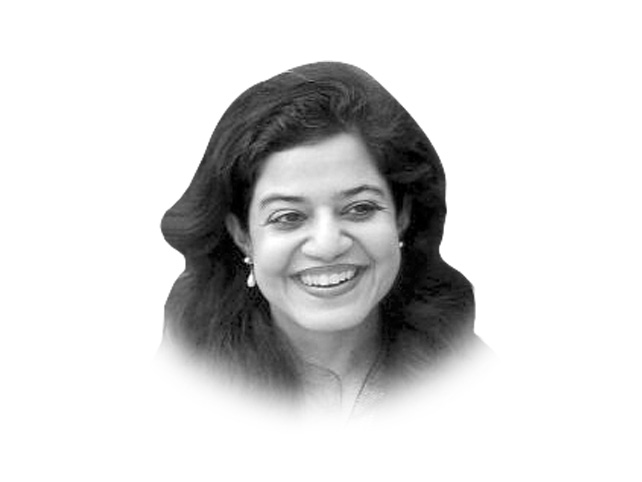
Hale’s resolutions provide excellent guidance for persons interested in regulating judicial conduct. In fact, in keeping with his tradition, our very own Supreme Judicial Council framed a Code of Conduct for judges of the superior courts of Pakistan originally under the 1962 Constitution and updated it in 2009. The unstated purpose of this Code appears to be twofold: to provide guidance to judges for the proper discharge of their duties and to inform lawyers, litigants and members of the public of the standards of behaviour to expect from judges. The only question that arises is, whether this Code is adequate for modern times?
The preamble of the Code, after recognising the supremacy of God and the Constitution, affirms the commitment of the judiciary to interpret and apply the Constitution and the law, “for the maintenance of the Rule of Law over the whole range of human activities within the nation.” Whilst, in recognising and endorsing this ideal, the judiciary that it belongs to the most exalted tradition of jurists, it does not provide concrete steps that it may take to achieve this ideal, especially in the face of an executive used to unbridled power and unwilling to easily relinquish its domain.
Even more importantly, by couching its ideal conduct in exalted and nearly archaic language, the judiciary appears to have failed to appreciate the evolution in the understanding of its nature and authority and its consequent place and role in modern society. It appears still to be thinking of the theory posited by the French social commentator and political thinker Montesquieu, that “judiciary is the point of most direct confrontation between the government, law and the individual and it could therefore serve as the best barrier against lawless governmental actions”.
In subscribing to Montesquieu’s theory, the judiciary appears, however, to have overlooked an important caveat: in his model, cases were decided by judges and juries who were derived from the people, sat only for a temporary duration and rendered judgments strictly, and only, in accordance with the law. His theory, therefore, does not hold for a judiciary such as ours which is drawn primarily from the socio-economic elite, where lay juries play no role in judicial decision-making and most importantly, where the judiciary is becoming increasingly prone to exercising and expanding its discretionary powers to deliver, what it perceives to be, justice.
In these circumstances there is a distinct danger that in its zealousness to deliver its notion of justice, the judiciary may veer so far off the beaten track of law, that it finds itself constrained either to change the rules of the game in the course of litigation or simply to prioritise cases in such a manner that it not only shortchanges the litigant but also undermines the fundamental principles of legal certainty, predictability and transparency that form the cornerstone of the very rule of law that it purports to uphold.
To guard against such an eventuality, it is important for the judiciary itself to recognise not only its elite social status but also its humanity which forces it, despite all aspirations to impartiality, to allow its nature and background to influence the business of judging. And having acknowledged this, it is important for it first to accept that in these circumstances it is not, and indeed cannot be, the only guardian of the rule of law and must in fact be guarded from its own excess by parliamentary and informed public opinion and then to devise for itself an appropriate charter so that it remains worthy of the respect that it demands and indeed deserves.
Published in The Express Tribune, February 8th, 2013.
COMMENTS (4)
Comments are moderated and generally will be posted if they are on-topic and not abusive.
For more information, please see our Comments FAQ



1731655243-0/BeFunky-collage-(61)1731655243-0-165x106.webp)








@Muneer agreed partially. PAKI SC is loosing its high image owing to two factors. Firstly, they do not have any implementation tool of their verdict, they say some thing and it goes into vain soon and secondly they speak too much only to gather the attention of media - some time like kids or many time like Mula Jatt having a Barak only but these things do not last long and people seek for definite results of decisions which when not there really takes the graph down
The problem with Pak SC is, that, it is not even following the letter of law.They are perhaps following,'the law as interpreted by them',considering it as of 'Divine Origin'.
Now that was a little heavy but well worth the slow careful read. For a layman looking at the situation as it stands, all one can see of our judicial working is a lot of ' sound ' and very little ' outcome '. The two simple sayings that should followed but are not : Justice delayed is justice denied. For justice to be done it must be seen to have been done.
By quoting Sir M. Hale, the author pretty much gives credence to PAK SC decisions rather than her own theme of the article.
Hale disagreed with the notion that law is subject to reasoning (firm believer in the letter of the law and not the spirit of the law) and his views were that only "reasonable" outcome of justice "from set of laws(contracts)" can only be delivered by "learned judges over commoner"-who has only reasoning of the law(spirit of the law) but do not have the advantage of the letter of the law, as judges.
Sir. Edward Coke is a better one to quote to the spirit of the article-he argued for intellectual reasoning and "intellectual beauty" of the law and was a firm believer in logical reasoning of natural law which has inherent binding power-the reasoning of intellect of commoner and the learned judges are the same. This inherent reasoning of intellect leads to " predictability of the ( out come) of the law : steal or kill or lie or cheat, you get punished - basic sense of good and bad inherent in man's intellect.
A code of conduct if reasoned well enough with intellect never needs updating. Only the rules and laws need updating. Here is the problem ; the preamble to the code of conduct of PAK SC says that "The Constitution, by declaring that all authority exercisable by the people is a sacred trust from Almighty Allah, makes it plain that the justice of this nation is of Divine origin". ( I will leave the commentary on this passage to others) .
End of story in reasoning and subscribes to the letter of the law.
If Hale were to prevail today Slavery, Segregation, and inequality of women will be the norm in many nations. Letter of the law
Whereas, by natural law of reasoning and intellect, mankind agreed with Coke without knowing. -spirit of the (natural, reasoning) law and try to live or aspire to live in a free society that is just in our reasoning.